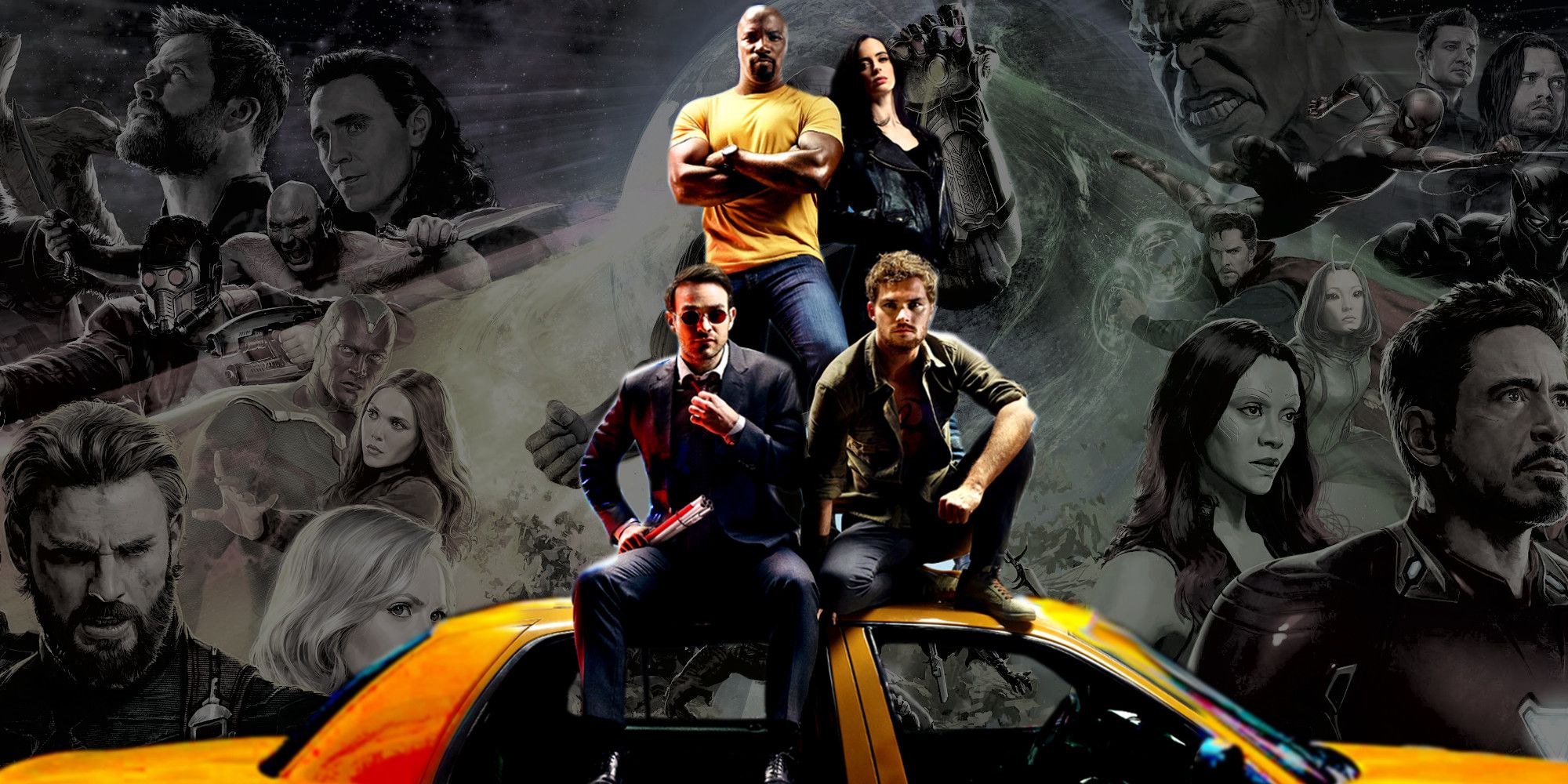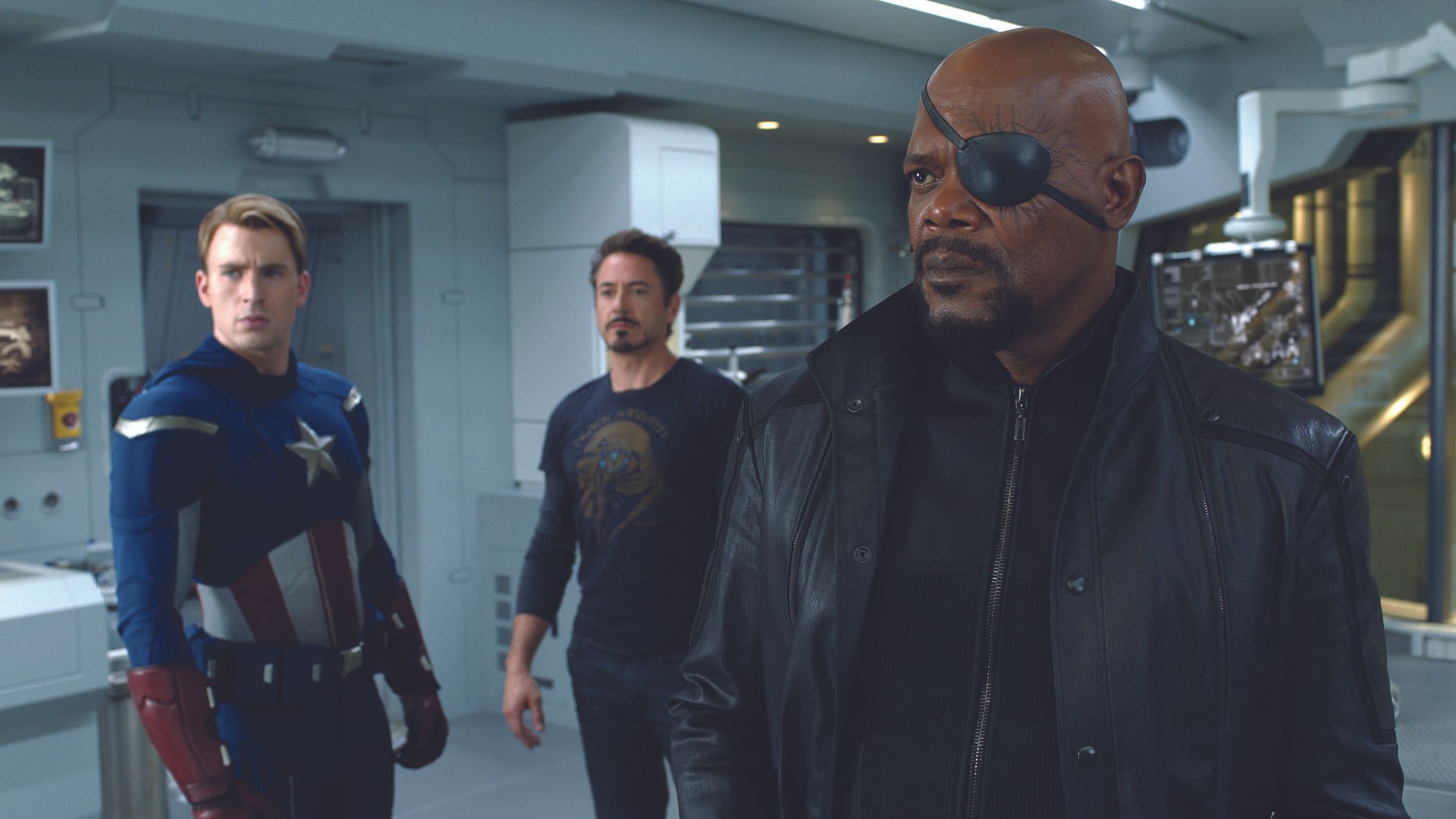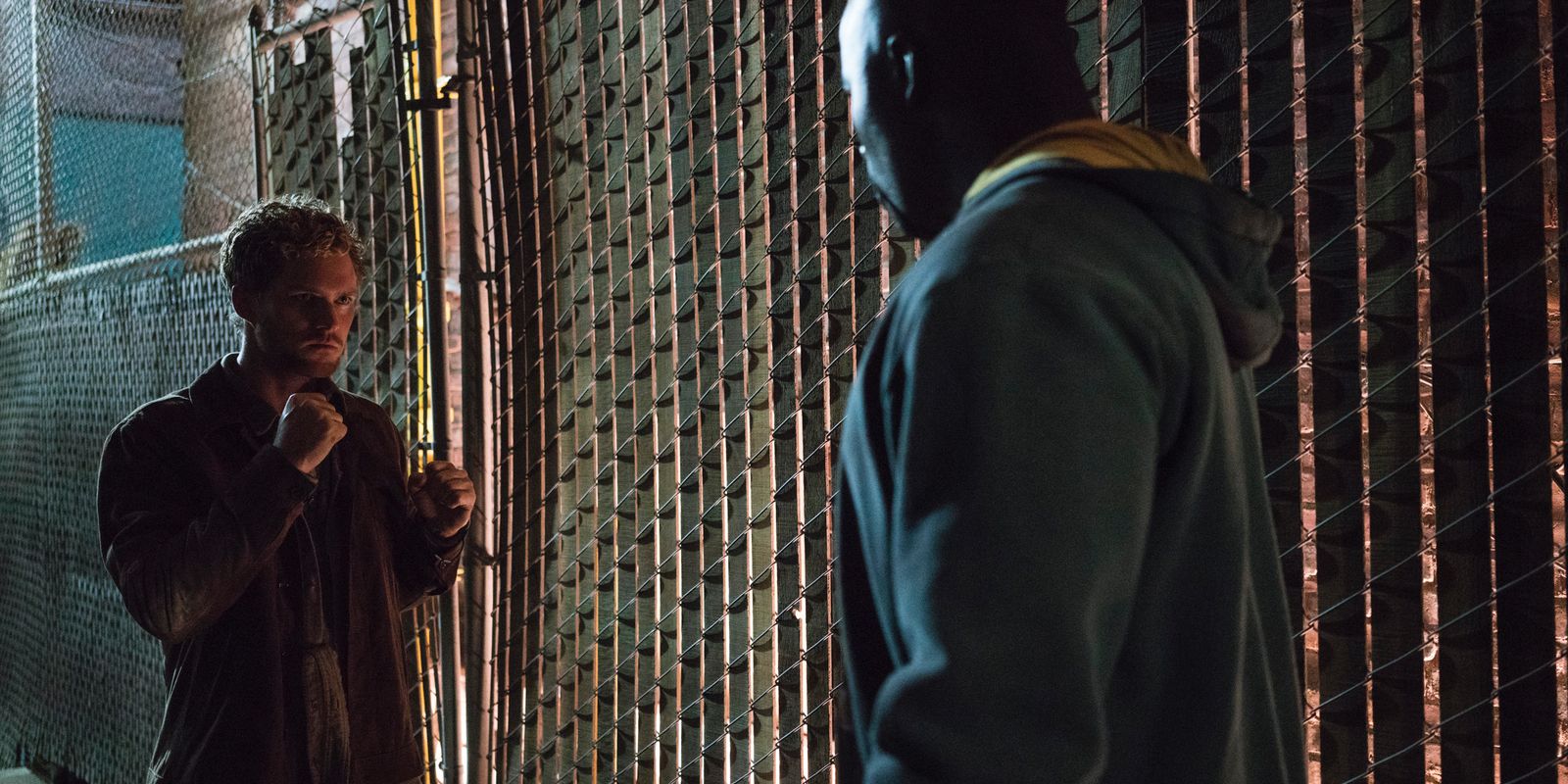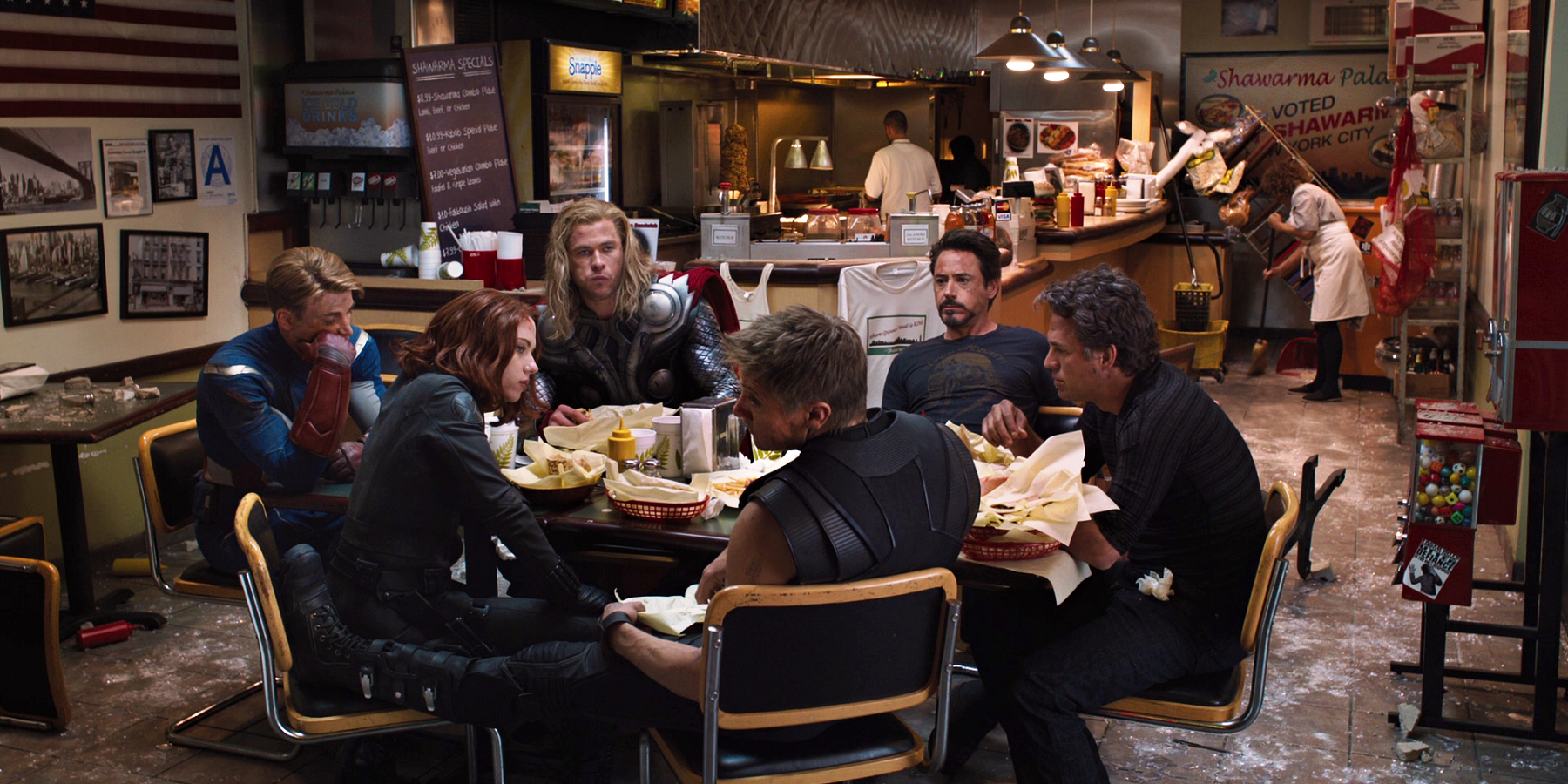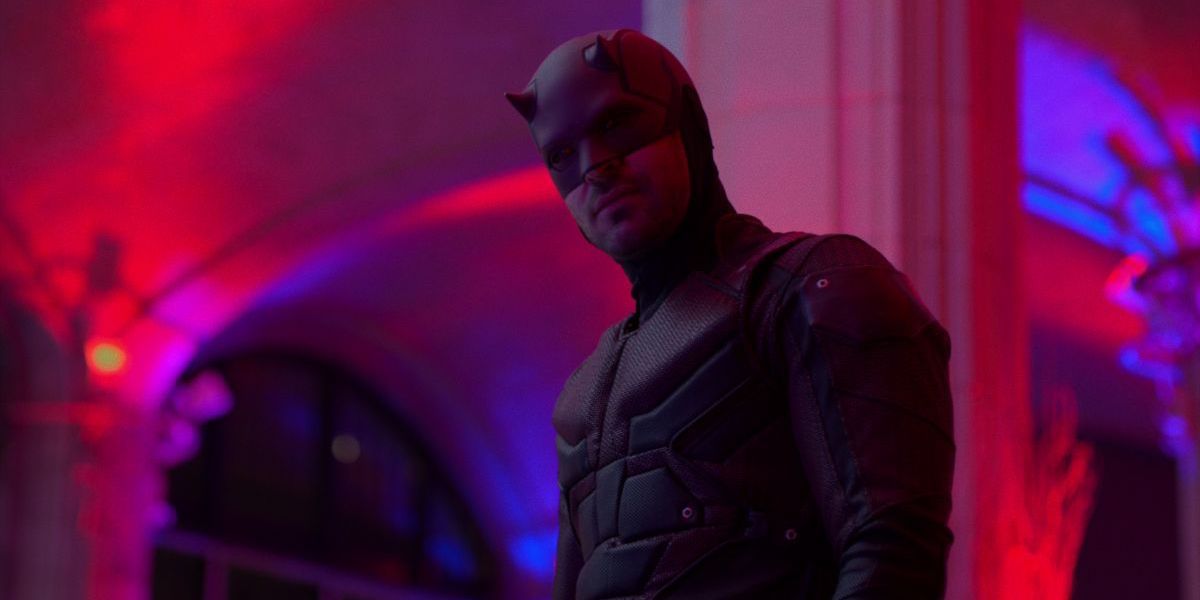Superhero team-ups are the stuff of comic book readers' dreams. Having your favorite characters come together to take down bad guys and exchange quips is what everyone wants to see. In 2012 Marvel gave fans just that with The Avengers. The film marked the end of the studio's Phase 1, which began by introducing Iron Man (Robert Downey Jr.), Captain America (Chris Evans), Thor (Chris Hemsworth), and the Hulk (played at first by Edward Norton) in their own solo features. Since then the team has grown, fought, and assembled twice with their 3rd outing in Avengers: Infinity War looking to be their largest yet.This formula is one Marvel has used with much success. Characters are introduced in their own solo ventures, discover the origin of their power, overcome adversity, and finally learn there are others like them in the world. Following a similar (albeit more serialized) pattern over five different Netflix seasons, viewers got to meet Daredevil (Charlie Cox), Jessica Jones (Krysten Ritter), Luke Cage (Mike Colter), and Iron Fist (Finn Jones) before they teamed up in The Defenders. Establishing the worlds and mindsets of these characters before they all come together goes a long way in making viewers care about them as a group.However, the way in which these teams of heroes come together are very different. Despite the fact that #ItsAllConnected, Marvel's Netflix shows don't have a lot in common with their films (or even their ABC shows). The fact that The Defenders aren't the Avengers is a good thing because it reflects the distinct worlds these characters inhabit.
The H Word
The Avengers are established first and foremost as a team of heroes. They are brought together by Nick Fury (Samuel L. Jackson) to fight Loki (Tom Hiddleston) and his Chitauri army. They have a specific purpose and mission statement. As Fury tells the group:
The idea was to bring together a group of remarkable people to see if they could be something more. To see if they could work together when we needed them to fight the battles we never could.
That is what a superhero is: a beacon of hope, the best of humanity. They don costumes and fight threats when called upon because it is their duty. The Avengers didn't know each other or necessarily want to work together, but they put aside their differences for the greater good.
The Defenders aren't heroes. In fact, they actively fight against this label. They are vigilantes. They go against the law and they (usually) work alone. The Defenders do not receive the praise or the respect the Avengers do after saving New York City in their first film. This fits with their more grounded world. Other than Daredevil, they are relatively unknown and even he has a secret identity to protect those he loves from harm.
The "incident" of the first Avengers film is mentioned throughout all of the Netflix shows, but the presence of aliens invaders and cosmic realms is not their concern. They operate at the street level. The Defenders are concerned with the direct threats to their communities or themselves which makes their shows a more personal affair. It narrows down the world and despite the presence of super powered individuals make the events feel more grounded in reality.
Assembly Required
The Avengers are brought together by Fury under the banner of the (then) government organization S.H.I.E.L.D. There are files where they are studied, everything is very official. Throughout the solo films we are aware of that this group will be formed thanks to cameos and post credits teasers.
The Defenders come together in a more organic way. There is no single person or organization that brings them together (in fact they go against the NYPD a number of times), no strong leader holding them all together. Each character has a personal reason for fighting the Hand. Matt and Danny have a history with them, Luke is searching for answers about the missing young men in Harlem, and Jessica just wants to solve her case. They all meet tracking separate leads. Several times they question their purpose for teaming up or someone tries to leave the group altogether.
For the Defenders, the fight is much more personal than the Avengers. Only Thor knows Loki, but all the Defenders are in some way connected to the threat of the Hand. It gives the events of the show additional stakes. It also provides a good reason for the characters a reason to stay despite their opposing views and clashing personalities.
Parting Ways
At the end of The Avengers, the heroes go their separate ways. However, it is understood that when the world needs them again, they will answer the call. Their parting is temporary because now the world knows of their existence. Fury is keeping tabs on them so that when the time come he can bring them back together.
There is no such future for the Defenders. Showrunner Marco Ramirez compared the end of The Defenders to a group of people who get in a bus accident. The characters have experienced something traumatic that brought them together, but there is no promise of a future.
The events of The Defenders have strengthened the connections between the characters that already existed as well as building new ones. There is the tease of lasting friendships especially for the Heroes For Hire Luke Cage and Iron Fist, as well as a potential rekindling of a relationship for Luke and Jessica. But the feeling that these characters will continue to fight together does not permeate the end of the series. All the characters (especially Jessica) seem content to go back to their old lives.
Style Points
Overall, the Phase 1 Marvel films have a relatively similar styles. Tony may get rock music while Captain America has the Big Band of his era, but they all feel as if they exist in the same universe. And The Avengers fits into this universe seamlessly. It isn't something totally new, but an extension of the existing films.
One of the strongest parts of The Defenders is how it feels like a puzzle. Pieces of all four shows can be distinctly felt throughout their singular series. There's the music of Luke Cage, the witty banter of Jessica Jones, the classic hallway fight scenes of Daredevil. The distinct color palette of each character is reflected. When Matt appears he's bathed in red, Jessica gets purple, Luke is all in yellow, and Danny is green. When the characters interact their colors blend like the red light coming in a purple bathed room when Daredevil and Jessica fight together.
The style choices of The Defenders reminds viewers that these characters are all stars of their own show. Their worlds may be coming together, but they do not have to sacrifice their personalities or the strenghts of what made each of their shows great. At times this means the stronger series like Daredevil tend to stand-out more. However, in the end, all the shows are made stronger in coming together (like the characters themselves).
Whether it is big, epic battles or darker, grittier fare, both The Avengers and The Defenders each have something for comic book fans to love. The Avengers are the classic superhero team who fight the big bads and save the day. The Defenders represent street level New York City smaller stakes and more intimate stories. The fact that they aren't alike is what makes them work. The world needs more than one kind of hero and not everyone can wear a cape. Sometimes a hero just needs a leather jacket and some attitude.

